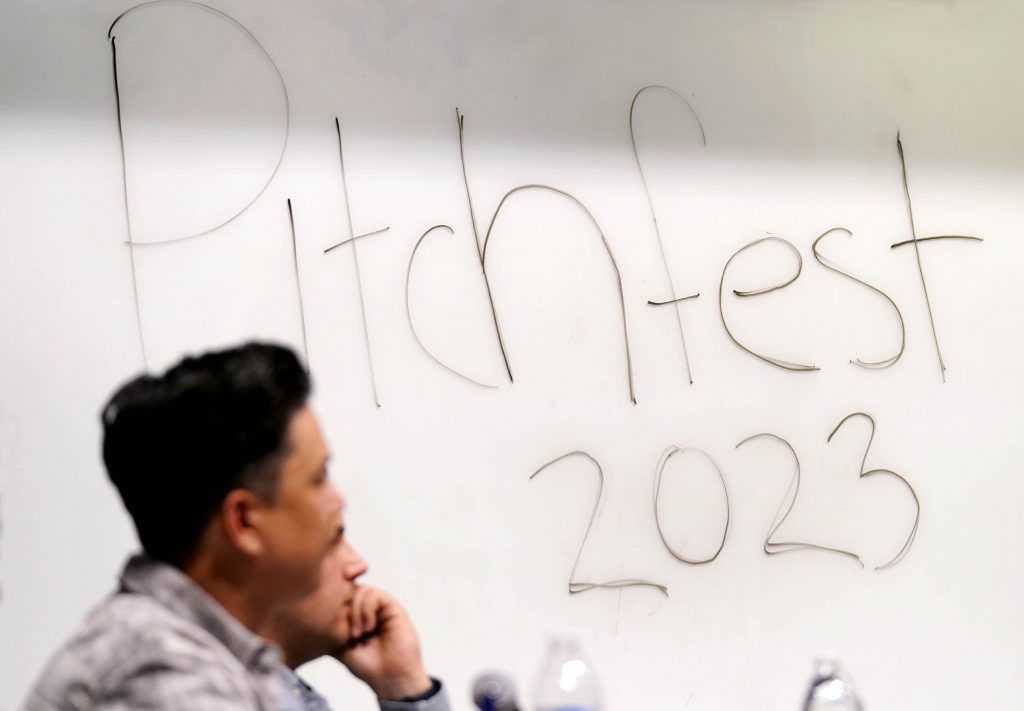
Photos by Ralph Freso / Slideshow
Elevator pitches might very well be the least favorite concept for any striving professional. It is a daunting idea to summarize one’s skills in just a few seconds, but Grand Canyon University’s film students did not back down from the challenge at the recent PitchFest.
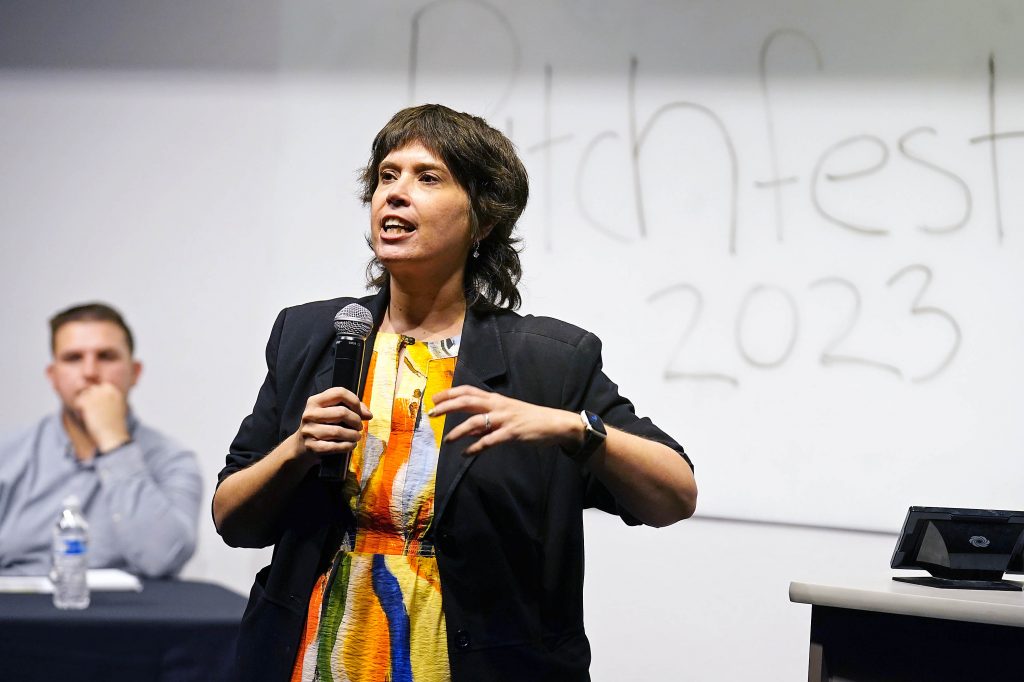
The event gave students an opportunity to pitch a film concept to a panel of industry professionals and why they are the right one to tell the story, all within 90 seconds.
Last November, GCU’s film program received a grant from the Bridges/Larson Foundation, and part of the grant was intended to support students in their projects. Dr. Lisa Tervo, Chair of Digital Film, and her team got to see that goal unfold on stage last week as students presented their ideas at the Pitch Fest for the second year in a row.
“This is something I wanted to do because it is something our students need to get good at – the idea of pitching their concepts. Being able to bring this event back with funding, and the incentive that the ideas can be produced, got students excited,” said Tervo.
Roughly 25 students signed up to pitch their ideas.
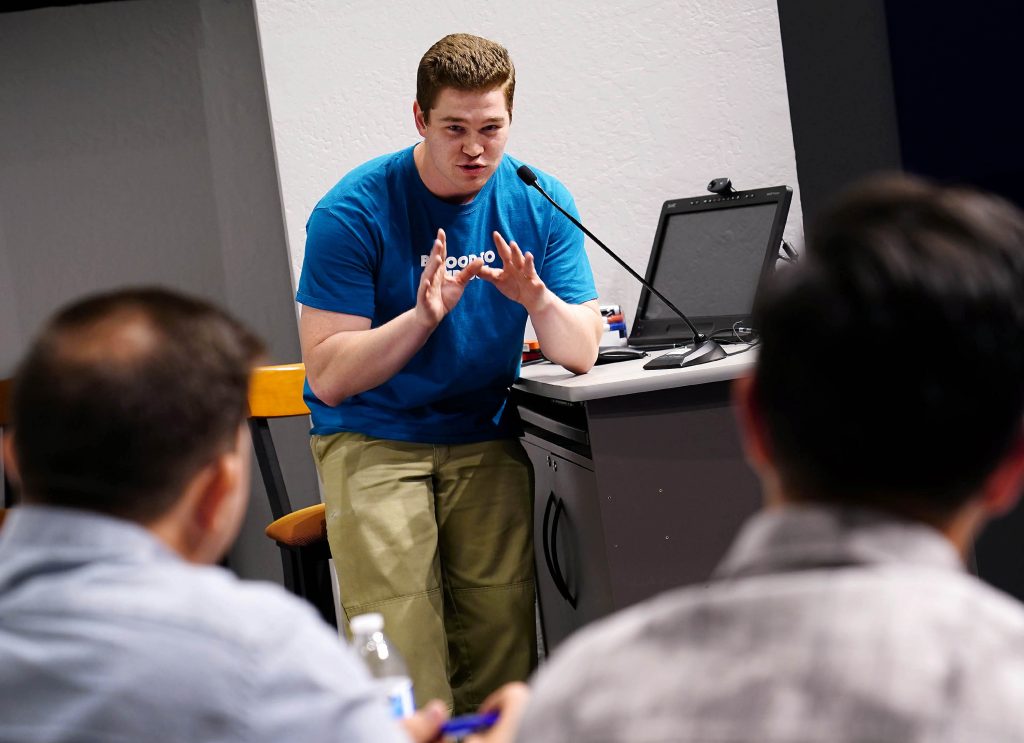
Students at the three-hour event presented their ideas on stage in front of a panel, followed by a 5-minute question-and-answer session. This is when the judges had a chance to pull out more information from the students by asking questions to really understand their ideas.
“The toughest part for me is to find that right panel to be able to hear the student pitches, ask insightful questions, be able to understand what is doable and what would be a good final film,” explained Tervo. “Our panel has to be able to hear the pitches and, right away, understand if that is a 10-minute film, 30-minute film or hour-long film. It takes a lot of skill and intelligence to be a good judge for this type of competition.”
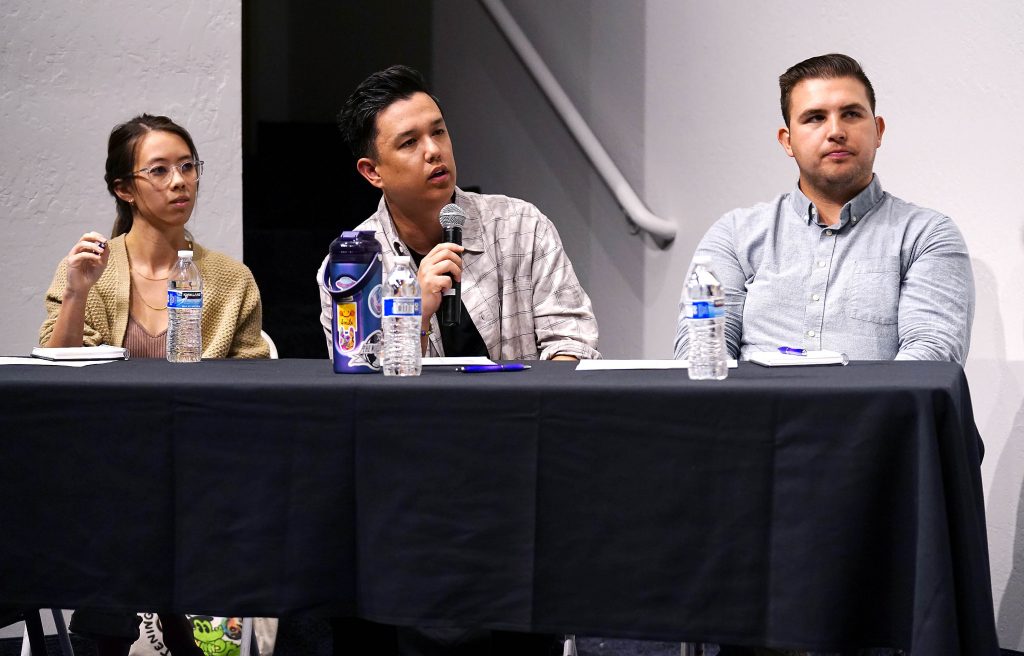
These concepts ranged anywhere from short films to short documentaries and even pilot episodes for a streaming series.
“It is nerve-racking and fun. Win or lose, it is a good learning experience,” said Kennedy Beckius, a sophomore film major. “You have to be in tune with your emotions. You have to be in touch with human emotion in general. People want to see authenticity. They want to see emotional character development. Emotion is what connects people to people, so you have to create from that standpoint.”
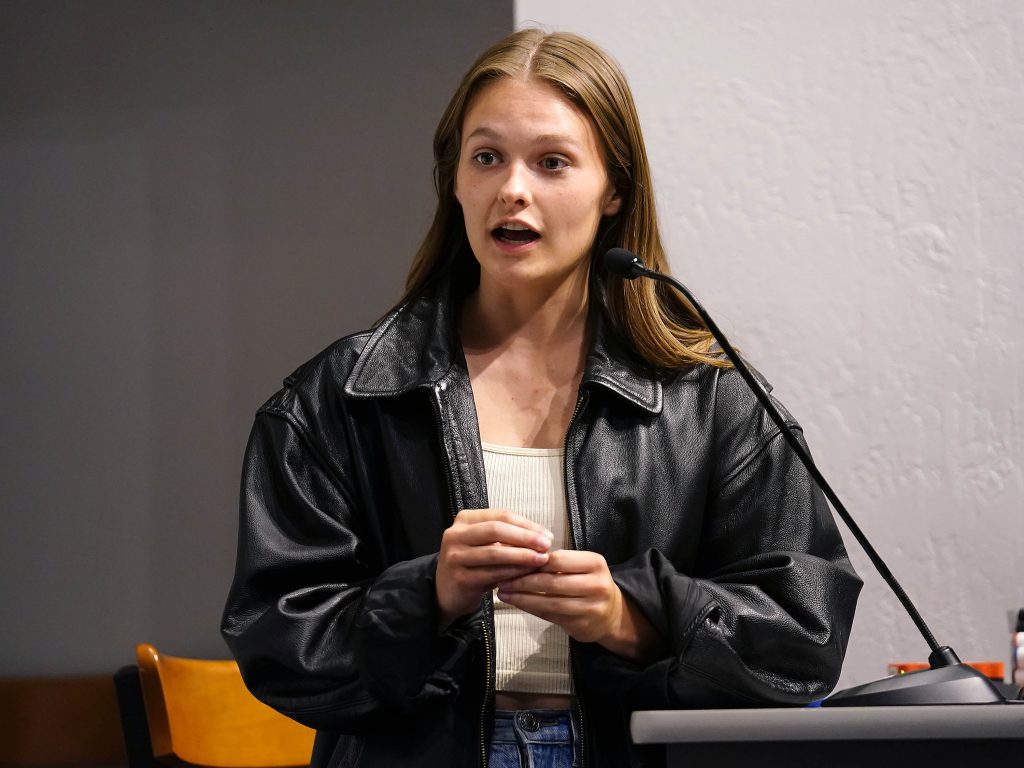
Students were being strictly timed, and as soon as 90 seconds hit, they had to stop presenting, regardless if they shared everything they intended. They could finish their sentence but not begin a new one.
It was solely through the power of word and communication that they had to convey their ideas, both reflecting a riveting story plot and a personal reflection.
“I know what my stories are, where they are going and how they will end. I have it down to color, sound and visuals. I really like these ideas, and I care about them so much to do that. Being able to answer those questions is a lot easier than having to fit your entire pitch in just 90 seconds,” says Noah Garretson, a senior film major.
By the end of the 90 seconds, the panel and audience should be invested in both the film story and student’s personal story.
“I try not to think of it as a pitch. I am a storyteller first. They don’t just look for a product, they look for you in that product, so I am just wanting to be myself and have fun,” said Diamond Benjamin, a senior film student. “I want to create and be creative like my Creator.”
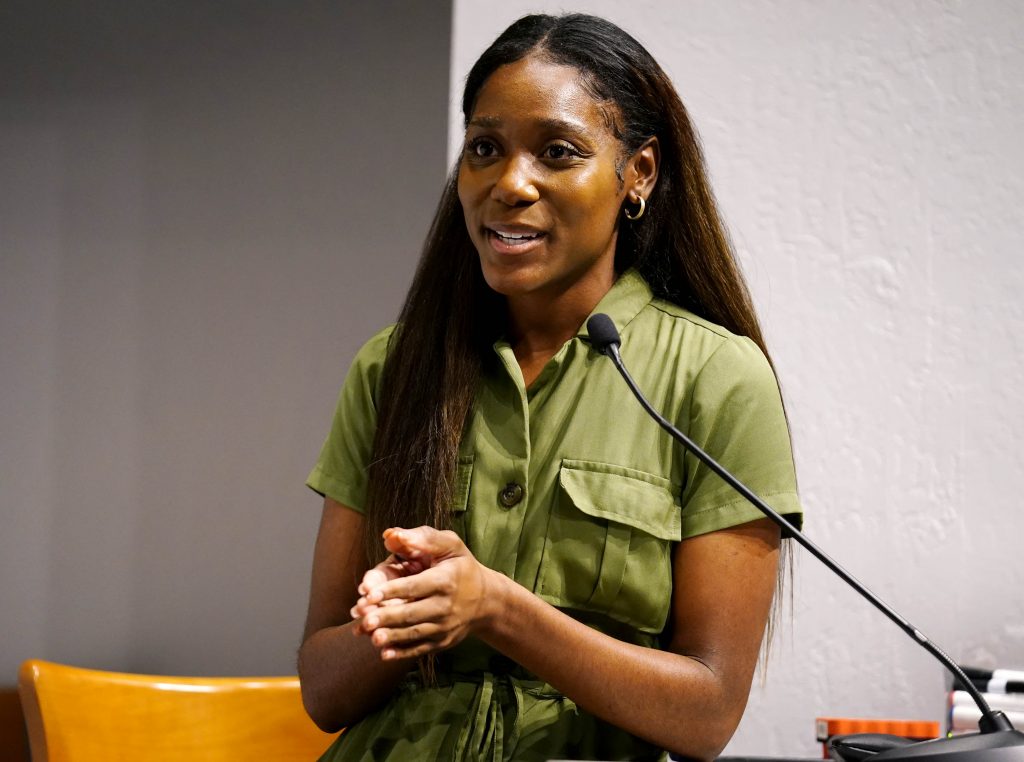
And that is exactly what she will get to do after being announced as one of the top four winners.
In addition, Beckius, Victor Diaz and Steven Sellin also have been selected as the winners.
This was solely based off the quality of their pitch and how confident the judges were that those students are the ones who really know their story. The prize package includes $5,000-$10,000, depending on the size of the project, and the dream of every film student – the invitation to go to the Sundance Film Festival.
Tervo, film faculty and adjunct professors will mentor these students to help polish scripts and get them ready for production.
From last year’s fest, two projects already have been produced, and a third one is in the works.
Tervo said, this year, the goal is to produce all films in spring and summer, so that next fall will be a clean slate for the following PitchFest.
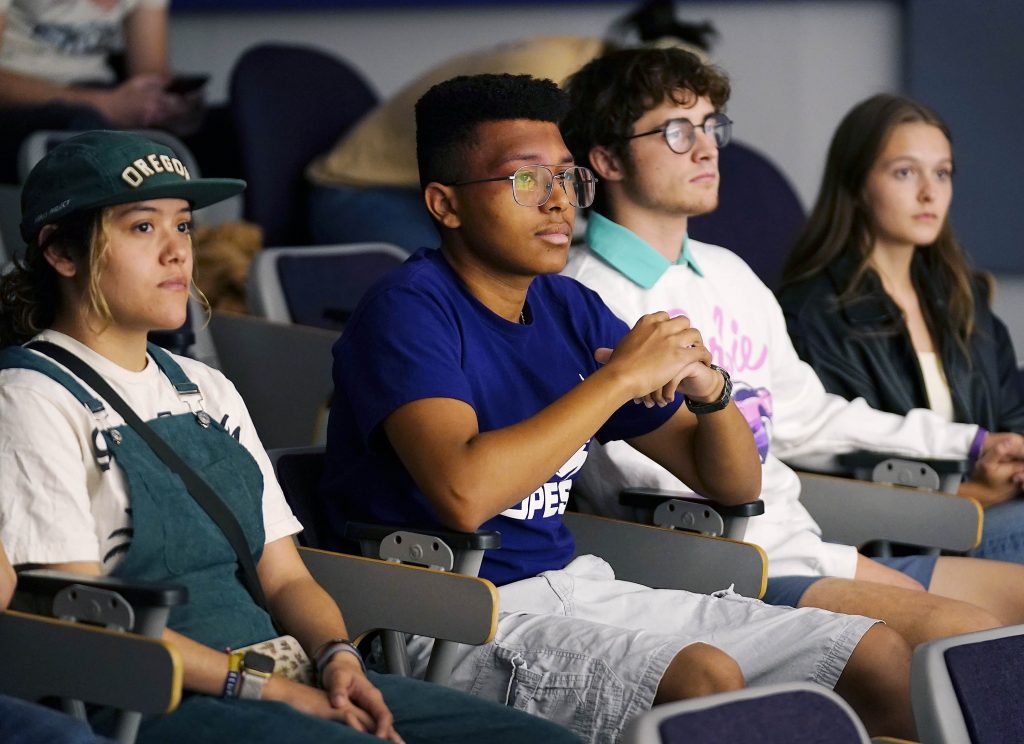
“When planning this PitchFest, initially we wanted to have a one-hour mixer for the panel to get to know the students, and the PitchFest would be two hours. However, because of high interest from students, all three hours had to be dedicated for the PitchFest. Otherwise, we would have to say no to students, and we don’t want to say no.”
Tervo and her team might have to consider extending next year’s event to four hours. Even with signup sheets opening in advance, more students came unexpectedly as the night went on, hoping to pitch their last-minute thoughts. The interest in the program is increasing, and its student population is growing.
GCU's staff writer can be reached at [email protected].
Related content:
GCU News: Bridges/Larson grant supports film students with Sundance trip
GCU News: Bridges/Larson scholarship finalists screen films at showcase
GCU News: 'Identity Crisis' filmmakers, GCU students collaborate on festive visit



































































